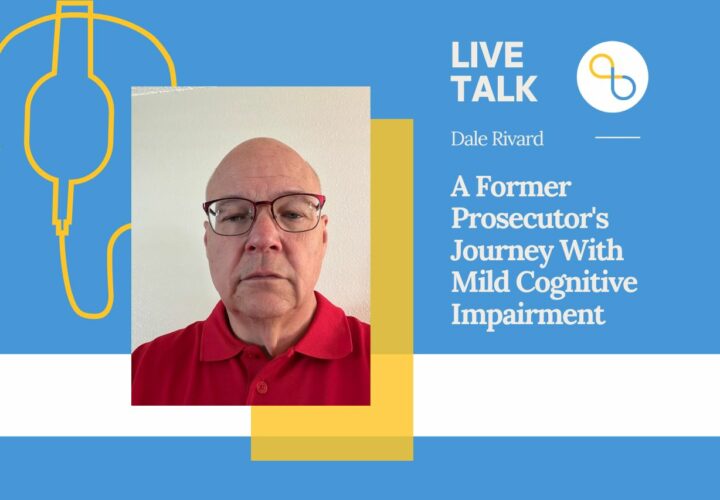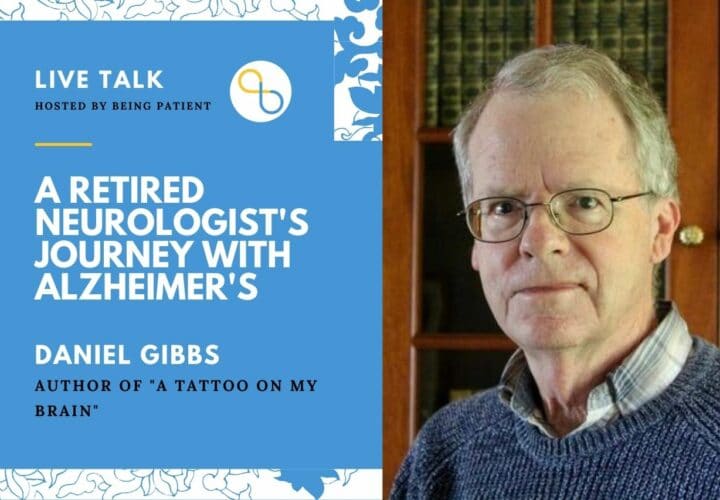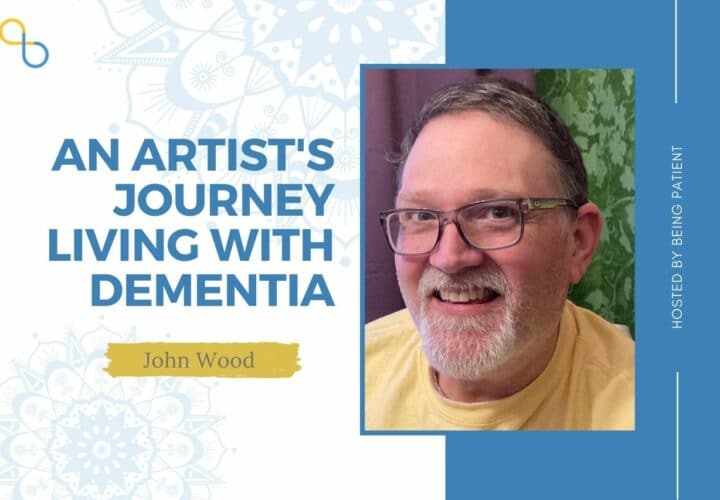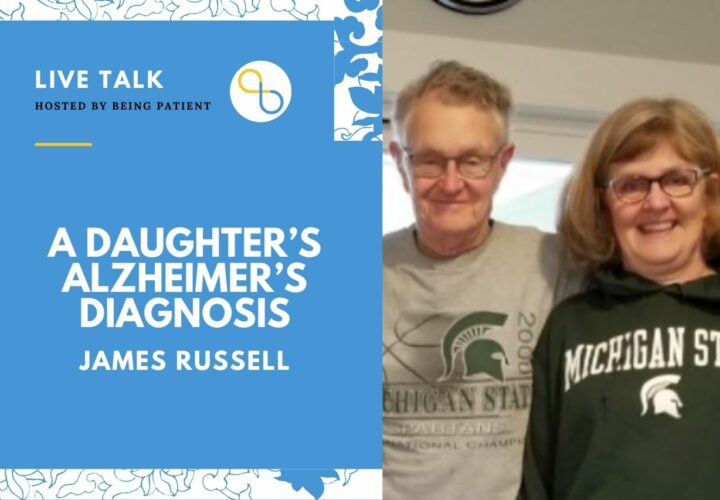When mild cognitive impairment cut trial attorney Dale Rivard's career in law short, he started a fulfilling new chapter.
For Dale Rivard, practicing law and working as a trial attorney was his calling. Rivard’s diagnosis of mild cognitive impairment (MCI) in 2017, however, spelt an end to his job as a prosecutor and assistant state’s attorney in Grand Forks, North Dakota. The diagnosis was heartbreaking for Rivard and his family.
About five years on, Rivard, 64, said the underlying cause of his MCI remains unclear, and his condition is progressing. But as he reflects on his experience thus far, Rivard said is grateful for all the support he has received from loved ones and others on the same path. By sharing his story, he hopes that those affect by MCI, and Alzheimer’s and related dementias can see beyond the devastation of a diagnosis. As part of our LiveTalk series, Being Patient speaks with Rivard about his career in law, the early symptoms of MCI that he experienced, and how he has adapted to a fulfilling new chapter of his life.
Being Patient: Tell us about your professional background.
Dale Rivard: I’ve been lucky, I have to say. I have farmed for a few years. I worked in management, and then I went to law school later in life. I was able to start with the state’s attorney’s office. I loved what I did. Some people really don’t find out what they really want to do. I was so blessed, because I loved what I did. I [was] representing the state of North Dakota. I worked in the civil division, but I also did some criminal [law]. I did a little bit of child support. I [worked on the] commitment of sexually dangerous individuals, planning and zoning. I did juvenile law, termination of parental rights. It was a wide variety.
Further on, I had other attorneys report to me as well in the civil division. It was so fantastic. I worked with the best people … For me, being a trial attorney was my life. Even on the weekends, I’d make sure that I was on call in case something would happen. I’d be one of the first ones to go for a search warrant. I’d go on vacation and I always say, ‘God, it’d be so nice to get away for a while,’ [and] after a day or two, I’d be calling the office, trying to figure out [how] my cases were going, what’s next.
I was always on, but I loved it. I was really blessed to find an occupation that I truly enjoyed.
Being Patient: What ultimately led to your MCI diagnosis?
Dale Rivard: I fell on the ice and I hit my head. However I got to work, I have no idea. But at work, I collapsed, and they brought me to the hospital. They did a lot of tests and they couldn’t quite figure out what was wrong. I started having this fog which would come over me, and I couldn’t get rid of this fog. I was dizzy. We couldn’t figure out or determine what was actually going on.
They referred me to the Mayo Clinic in Rochester. After a lot of tests and numerous brain scans, they made that determination of mild cognitive impairment. The neurologist came in and he looked at me and said, ‘You have mild cognitive impairment.’ Naturally I said, ‘Well, mild, that’s nothing. What do I need to do? You got some drugs?’ He said, ‘You don’t quite understand.’ For him, it was a prelude to Alzheimer’s, and he said, ‘Your career is over effective today. You are done.’ I said, ‘Well, I don’t quite understand.’ He said, ‘Ethically, you can’t practice law.’
I told my employer that I was done. That was completely devastating. My life was law. This is what I was. All of a sudden you wake up and you no longer go to the office. Before, people would be calling all the time, and then it just stopped.
I knew things were going wrong [before the fall]. Before I had my hearings, I started to write down who would be in the courtroom: the name of the judge, the defense attorney. If I had a legal assistant next to me that I’d be training or another attorney, I’d write their names down because I couldn’t remember their names. I look back at it, it was kind of embarrassing, but I knew I was having problems. These were people that I’d see every day …
[I had] Post-its everywhere to jog my memory. Towards the end, I was struggling. I knew it. I knew something was going on, but I didn’t know what it was.
Being Patient: How did your colleagues, family and friends react to your diagnosis?
Dale Rivard: It’s so odd, because there is a stigma about this. That’s one of the reasons that I’m here. I want to erase that stigma because there’s a lot of people like me that live with it.
For my colleagues, there’s a couple that remained in touch but not very many. It was this feeling like they didn’t want to get too close. They didn’t want to talk to me. There was this feeling like they might get it, like you got some kind of communicable disease. I mean, these are intelligent people; they know it’s not true, but it’s just this feeling out there. They feel that you’re less of a person because of it.
For my family, I remember on the way home from Mayo driving home, my wife and I cried the entire six hours because it was so devastating. Especially that first six months after my diagnosis, I declined a lot. I didn’t think I’d make it a year, but lo and behold with some of the drugs to help with the symptoms and the support I’ve had, I’m still here. I’m just amazed.
Being Patient: You mentioned that practicing law was your life. Following the MCI diagnosis, how have you filled that void and continue to live a full life to the extent possible?
Dale Rivard: After I got my diagnosis, I didn’t know where to go. The first thing I did was I went online and I looked up the Alzheimer’s Association. I called them and it was the best call I ever made. [The Alzheimer’s Association connected me with] a singing group here in Grand Forks, North Dakota very close to me and it was called The Unforgettables. I called and started with the group … We get together once a week. The first hour or 45 minutes is just talking with other people with Alzheimer’s or related dementias. Singing is always secondary. It’s this communication and finding other people out there that are having the same or similar problems. You’re sharing information so you don’t feel quite so alone.
With the Alzheimer’s Association I was lucky enough to be part of a couple of groups. They keep you active. Just getting involved with people in the same situation really helps. Then of course, I was quite open about it. Some people are very closed. I know people that have a diagnosis and they just go away. It’s easy to fall back, to turn on the TV and not participate in life, but it really isn’t much fun.
“I was always pretty strong in my faith, but now even more so.
It’s like another world opens up. I no longer think about
work or court cases or any of those things. I think more
about my family, my church, my children, my grandchildren.”
You have to push yourself. By pushing yourself, you delay the inevitable because we all know where it’s going. I want to get as much out of life as I possibly can. I’m lucky enough to have a wonderful wife who supports me. I have children. I have been blessed by having this grounding force that surrounds me. That really helps me in everything that I do. I still try to do as much as possible. Some things I can’t [do]. Even in church, I’ve had to give up quite a bit … but that’s okay.
Being Patient: People have described the experience of descending into a dark hole following a diagnosis. I was wondering whether you can offer your perspective for folks who are in that dark place? How can you pull yourself up during dark moments?
Dale Rivard: I have my wife and she’s basically my rock. I don’t think she’d let me get too far in that dark hole. Knowing that there’s someone that’s out there that still loves you makes a big difference.
I know it sounds odd, [there’s] your faith. I was always pretty strong in my faith, but now even more so. It’s like another world opens up. I no longer think about work or court cases or any of those things. I think more about my family, my church, my children, my grandchildren. It kind of puts everything into perspective.
Being Patient: Any last thoughts to add?
Dale Rivard: Just don’t give up. If you have a diagnosis like this, or if your significant other has a diagnosis like this, keep them involved, keep them engaged, put them out there. Treat them as people. Treat them as [people with a] normal disability [like] anybody else.
The interview has been edited for length and clarity.
Contact Nicholas Chan at nicholas@beingpatient.com




My dad had MCI , but it has progressed. Apparently, I’m the only other one in the family who got it . I used to work at a warehouse with electrical supplies. I loved my job and I miss it.But I didn’t even realize that I could cause some major issues. I was devastated also.